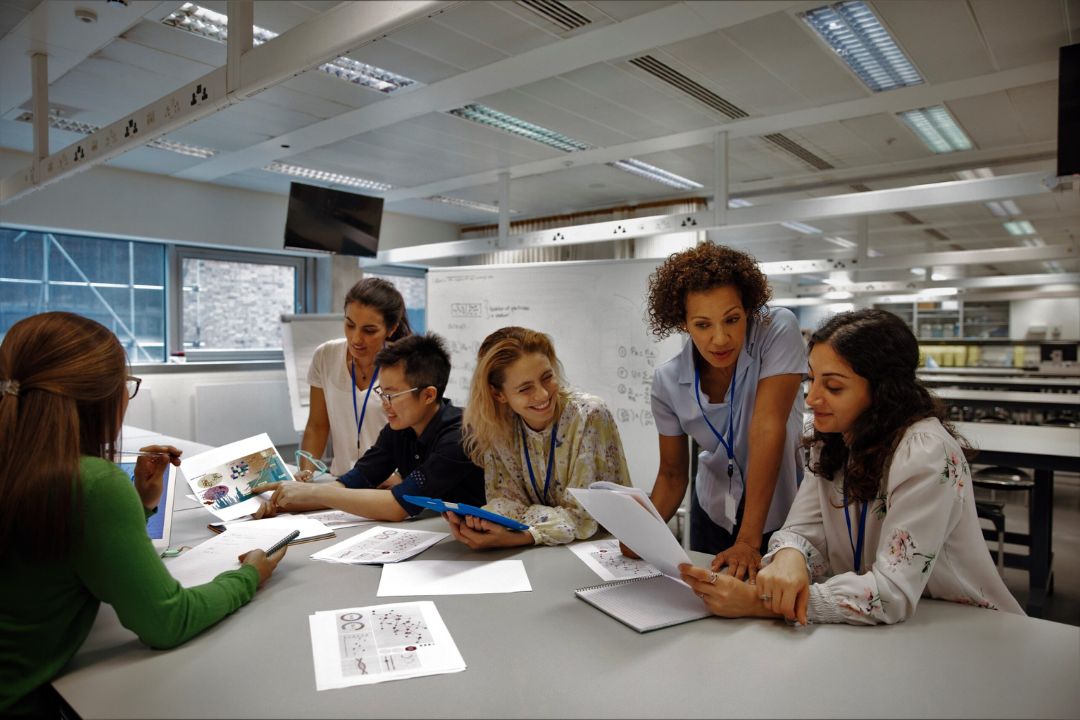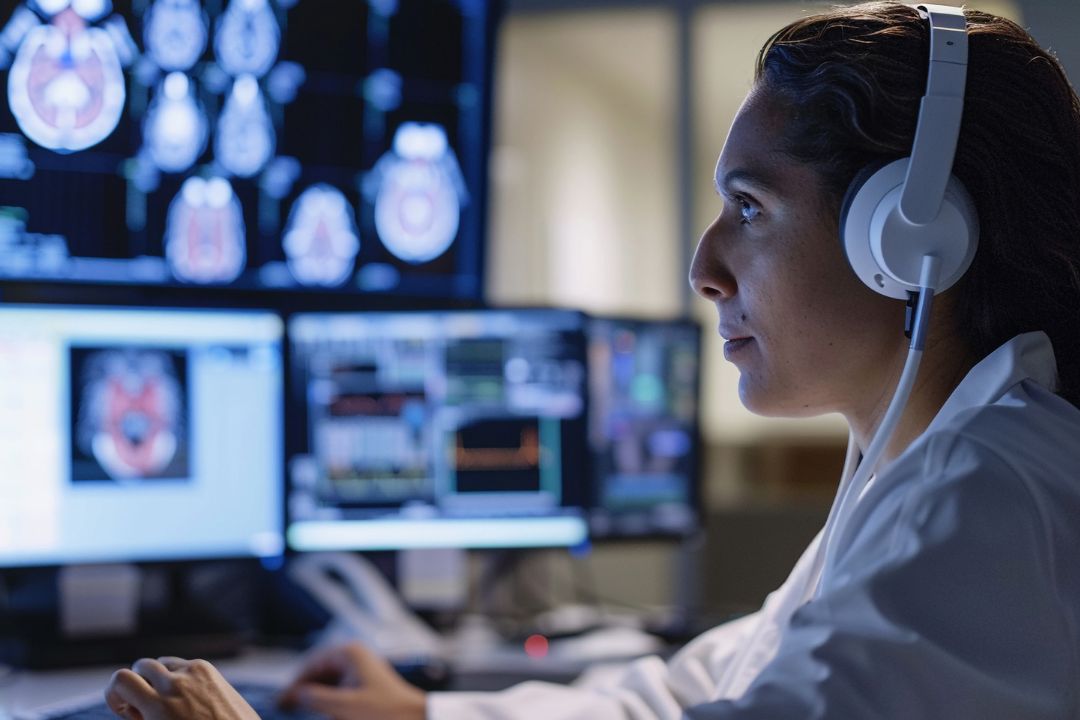29th April 2021
In 2020, we awarded 4 Headstart COVID-19 grants. One year later, let’s find out what’s been accomplished.
Following the outbreak of the coronavirus pandemic, EIT Health expanded the scope of its Headstart programme and launched a specific Headstart call, targeted at start-ups offering products and services that could alleviate pressure on the healthcare system. We were pleased to welcome 4 digital health startups into our community, Climedo Health, RAMPmedical, Ancora.ai and ScintHealth, by awarding them with a €50,000 grant. Now, one year later, we caught up with them and looked into what they have been up to.
Who they are, and how far they’ve come
With their eQuarantineDiary, Climedo Health enabled remote collection of patient data, giving researchers an affordable and holistic way of capturing and monitoring COVID-19-related clinical data. Because it was web-based, data collection could take place in compliance with social distancing measures. Since then, the Munich-based team has successfully implemented their project with support from Germany’s Federal Ministry of Health. “Thanks to the EIT Health Headstart funding, we were able to hire several new developers who helped build our infrastructure to meet the demand for the project,” reported Catherine Higginson, Marketing & Communications Manager at Climedo Health. They have also created an interface to the open-source software SORMAS, used for the management and analysis of outbreaks of infection.
Health tech start-up Ancora.ai and their AI-powered online platform have democratised clinical trials. The search tool identifies clinical trials and matches them to patients. Originally intended to support oncology patients, the team expanded their solution in March 2020, designed a specific algorithm, and developed a patient-tailored questionnaire to recruit patients for COVID-19 trials. “Our team has been very busy with new partnerships, despite the impact the pandemic has had on hospital bandwidth. Thanks to Headstart we have been able to kick off a pilot project with a leading oncology institution in Europe to validate the physician module we developed and beta launched during our time on the EIT program,” shares Emily Jordan, co-founder and COO at Ancora.ai. “One of our proudest achievements was completing our patient validation study and presenting the abstract at a leading conference, with the data showing that Ancora.ai significantly improves the clinical trial search process for patient users,” she added.
RAMPmedical is an EU awarded AI decision support tool that helps doctors to find the right treatment for their patients. The software analyses current treatment guidelines and medical research and presents the results in a way that clinicians can understand the information and avoid errors.
“Wrong therapy is a major problem in healthcare. According to the WHO, one in ten patients receives the wrong treatment, resulting in unnecessary suffering and often death. Already covering endocrinological and cardiological treatments, the software matches patient data with evidence and treatment guidelines, leaving the final decision with the fully informed and AI-empowered doctor,” notes Alejandra Abal, COO at RAMPmedical. The start-up had many exciting developments to announce, including receiving the Healthy Longevity Catalyst Award – administered by Headstart – as well as successfully adding therapy decision support for COVID-19 to their software to assist doctors worldwide against the current crisis. This support means that if a patient has other diseases, doctors can treat these and COVID-19 at the same time while considering all the possible comorbidities of the patient. On top of this, they carried out a retrospective analysis with anonymised patient data that showed their software improving the length of stay of hospitalised patients by 180%.
ScintHealth developed the concept of self disinfecting rooms to minimise the spread of contagious diseases in healthcare facilities, aiding in the fight against COVID-19. Thomas Wendler, CEO of ScintHealth, gave us some insight into their solution and its developments: “Our team was capable of putting together in a few months, a technical solution to make self disinfecting rooms possible. Our solution is based on UV-C lamps and sensors to detect human presence. However, it further introduces a brand new feature based on artificial intelligence-based computer vision tools, namely a fully automatic room reconstruction and calculation of the time needed to reduce the viral load of COVID-19 or other germs by 90%, 99%, 99.9%, or any value the user desires. In this way, we add intelligence to UV-C-based systems and enable a more effective fight against epidemics and multidrug-resistant germs. This technology is being tested at the hospital of the Technical University of Munich and hopefully will reach the market by the end of 2021.”
Obstacles along the way
From remote work to trying to incorporate their solutions in overburdened hospitals, it was not always smooth sailing for our start-ups. Besides delays on supplies, Thomas Wendler from ScintHealth reported: “Despite us starting already with the knowledge of how a strict lockdown worked, we still did not count on the fact that many laboratories would be closed even for developments against COVID-19 to concentrate on dealing with urgent patient issues. Many of our experiments were thus delayed and the project could only be completed 2 months later than planned.”
Emily Jordan from Ancora.ai added: “Hospitals and physicians have been understandably very overwhelmed in our key markets throughout the pandemic, which has meant that we’ve had to be quite flexible and work within their capacity as we set them up to work with Ancora.ai to improve their clinical trial capabilities. The silver lining is that the need is quite clear for a technology that makes the process easier, so we’ve had great feedback from our users and pilot sites so far, even during these crisis times.” The nature of start-ups has both its advantages and disadvantages, as Helene Schönewolf, Co-founder & CEO of RAMPmedical shared: “In reality, there are still major challenges in terms of implementation, especially in remote regions or where hospitals suffer from financial problems. But I am optimistic that the current political, legal and subsidy measures will help to put the vision into practice and that innovation in the healthcare system can take off. The advantage of startups is that they can react quickly with innovative solutions, are unfortunately sensitive to crises, but also emerge again quickly.”
Recognition received
Unsurprisingly, a lot of interest has also been shown for the COVID-19 solution start-ups. For example, Climedo’s co-founder and COO Veronika Schweighart received the German ‘Thought Leader 2020 Award’ initiated by Germany’s Handelsblatt and the Boston Consulting Group. Her team also took part in a live stream on ‘Public Health Solutions’ with Germany’s Federal Health Minister Jens Spahn in November 2020. Honourable mentions of the Ancora.ai team include a Google Profile and Forbes DACH interview with co-founder Emily Jordan as well as CEO and co-founder Danielle Ralic being a guest speaker at the WIRED Health EY start-up showcase event. Also, RAMPmedical was featured in the ‘Health Innovation Ecosystem Fighting Covid-19’ map developed by Frontiers Health. While ScintHealth is working hard to carry out usability studies at the hospital of the Technical University of Munich, which once closed will be followed by a market introduction campaign.
Reflections
The past year has proven to be a difficult year for us all, not least the healthcare sector. “Although COVID made some things trickier for everyone, we were also able to seize a real opportunity here and put our software to use in a new context, while helping to fight the pandemic. We’re very happy to have secured this project and that we were able to grow significantly even during a global crisis.” – Catherine Higginson (Marketing & Communications Manager, Climedo Health).
The best way out of these precedented times is together. With their solutions, the four start-ups go beyond supporting the healthcare system during the crisis. Instead, they also provide value to society as a whole. “The pandemic has shown the world what is possible if we come together to optimize and prioritize clinical development. Multiple vaccines were brought to market in record time. Our team envisions a future where we can do what was accomplished for COVID for every disease. By scaling our solution we imagine a world where we can more quickly cure other diseases, including cancer.” – Emily Jordan (co-founder & COO, Ancora.ai).
“We already considered the marketability of our future product when we applied to the Headstart program [and started aligning] our strategy towards non-CoViD-19 diseases that pose a major risk for humanity and a huge burden to patients and the health system. Multidrug-resistant germs have been around since the fifties and will continue to exist and appear as long as humans exist. Antibiotic misuse, industrial farming, destruction of natural animal habitats… all these issues are giving such “super germs” new ways to hinder human development as we have learned in this pandemic. Our technology is a way to constrain the effects of such germs and as such this market will be our target in the midterm future.” – Thomas Wendler (CEO, ScintHealth).
The pandemic also opened our eyes to evident gaps in our healthcare systems: “The crisis has exposed some of [these] problems. Problems that startups have been working on to solve for quite some time. I think that the startups can therefore help to solve these problems quickly and contribute significantly to a faster stabilization of the economy” – Helene Schönewolf (co-founder & CEO, RAMPmedical). “I believe that the crisis accelerated processes that were already happening: it is no longer necessary to argue that we need digital health, it is in everyone’s eyes, all over the world. As a personal example, a few months ago it was the first time I had a medical appointment through a telemedicine platform. This wasn’t a new invention that occurred in the last months, but it was suddenly very available to me” – Alejandra Abal (COO, RAMPmedical).
New article lays framework for DMD evaluation in EU

An EIT Health-led article published in Nature.
New data shows AI innovation needs skills beyond coding

The largest live dataset of AI start-up talent analysed.
Europe's top health start-ups take centre stage: EIT Health Catapult winners are revealed at HLTH Europe

2025 Catapult programme winners announced.
